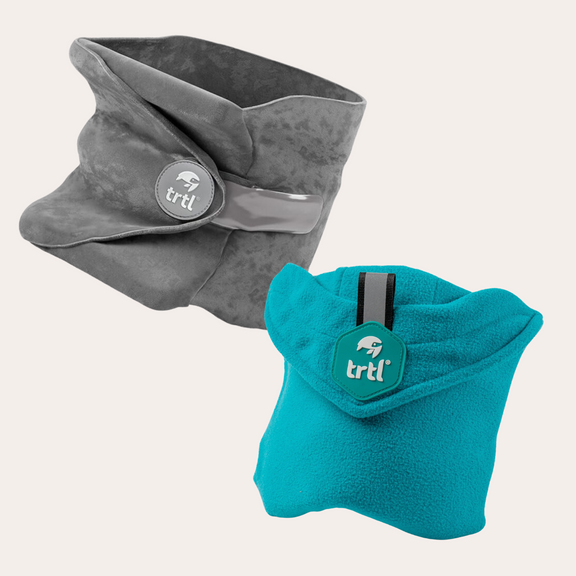Apr 29, 2025
The Top 10 Most Confusing Travel Fees That Catch People Out
By
Sophie Blanchflower
From booking that dream getaway to boarding your flight, travel can be full of little surprises — some good, and some not-so-great.
But one of the biggest holiday headaches you’ll come across? Sneaky travel fees. These fees can pop up when you least expect them, quietly adding pounds to your trip without you even noticing.
To help you dodge any unexpected costs, we’re unpacking the most confusing travel fees people still get caught out by in 2025, plus sharing our top tips on how to spot and avoid them before they throw off your holiday budget.
What are travel fees?
Travel fees are those extra costs that come on top of your headline booking price. Some are obvious, like the price of additional luggage or a checked bag.
Other fees are far sneakier, like resort fees or credit card conversion charges, which you don’t find out about until after you’ve paid. They’re not always scams, but they can definitely catch you off guard.
How do hidden travel fees work?
The problem with hidden travel fees is that they’re often buried in the small print or only appear right at the end of your booking. You might think you’ve found a great deal on a hotel or flight, only to discover extra charges when it might be too late to back out. That’s why it’s vital to double-check what’s included before confirming anything.
Some fees are automatically added (like tourist tax), while others might be optional but presented in a way that makes them feel essential (like rental car fuel charges). Either way, they can make a serious dent in your spending money if you’re not prepared.
The top 10 most confusing travel fees
Let’s take a deep dive into the 10 most confusing travel fees that catch people out, from the booking process to when you’re actually abroad.
1. Car hire excess
Hiring a car abroad? Don’t be fooled by that low daily price. If something goes wrong, you could be hit with a hefty excess fee.
What it is — Car hire excess is the amount you’re liable to pay toward any damage or theft before the insurance cover kicks in. The amount can be sky-high, sometimes over £1,000.
Why it’s confusing — Rental companies don’t always make the cost obvious when you book. You’ll only hear about it when picking the car up, and by then, you’re being upsold on pricey insurance options at the counter.
How to avoid it — Buy a standalone car hire excess insurance policy in advance. It’s often cheaper than the rental company’s option and gives better coverage. Always check the car thoroughly, take pictures, and mark any scratches or dents before leaving.
2. Baggage fees
Low-cost flights might look cheap, but once you add luggage, the price can skyrocket.
What it is — Most airlines charge extra for checked baggage and even for larger cabin bags. The cost can vary based on weight, size, destination, and when you add it to your booking.
Why it’s confusing — What counts as a ‘cabin bag’ or ‘personal item’ differs from airline to airline. Some offer confusing fare bundles with limited information about what’s included or the size of your bags.
How to avoid it — Check baggage rules carefully before you book. Add luggage when buying your ticket, as it’s usually cheaper than paying at the airport. Our Trtl Packing Pods can help you fit more into smaller bags, so you’re less likely to need a checked suitcase at all, only hand luggage!
3. Wi-Fi fees
We expect free Wi-Fi in coffee shops, so why do some hotels charge for it?
What it is — Some hotels charge a daily fee for internet access, especially in resort-style or high-end hotels. In some cases, it can be bundled into a resort or amenity fee.
Why it’s confusing — A hotel might say it offers Wi-Fi without stating that there’s a charge. You may only find this out once you check in or see it on your final bill.
How to avoid it — Check the hotel website or contact reception before booking to confirm. If they charge, consider using your phone’s hotspot (check your roaming plan first) or find accommodation with free Wi-Fi as standard.
4. Resort fees
Your room might be booked and paid for, but that doesn’t mean you’re done paying.
What it is — Resort fees are mandatory daily charges added by some hotels. They usually cover things like access to the pool, gym, beach towels, or other facilities, even if you don’t use them!
Why it’s confusing — These fees often aren’t included in the initial room rate and only appear at the payment stage, or worse, at check-in.
How to avoid it — Always check the total cost of your booking before confirming. Filter out hotels that charge resort fees or look for smaller accommodations where these fees are less common.
5. Early check-in or late check-out
Need a bit of extra time at your hotel? You might need to pay for the privilege.
What it is — Hotels often charge for checking in early or leaving late, even if the room is already available.
Why it’s confusing — Some hotels offer these services for free, while others charge steep fees. It’s not always made clear until you ask.
How to avoid it — Ask in advance or check if your booking platform includes this option. If you arrive early, leave your bags with reception and explore until check-in time — it saves money and lets you start sightseeing straight away.
6. Fuel charges for rental cars
Forgot to fill up your rental car before returning it? That’s going to cost you.
What it is — If you return a rental car without a full tank, the company will refuel it for you and charge well above local pump prices.
Why it’s confusing — Some companies use different fuel policies, like ‘full-to-empty’ or ‘prepaid fuel’, which aren’t always well explained.
How to avoid it — Always opt for a ‘full-to-full’ fuel policy if you have the option. Keep your receipt from the petrol station as proof you refilled it, and check the gauge before returning the car.
7. Tourist tax
You’ve already paid for the hotel, but at check-in, you’re told there’s another charge to pay.
What it is — Tourist tax is a fee charged by local authorities, typically calculated per person, per night, and paid directly to your hotel or accommodation.
Why it’s confusing — It’s rarely included in the price you see online and is often only mentioned in the fine print.
How to avoid it — You can’t avoid paying tourist tax, but you can avoid the surprise. Check the hotel’s terms before booking, and add it to your budget ahead of time.
8. Currency conversion fees
Paying with your card abroad? It might cost you more than you think.
What it is — If you choose to pay in GBP instead of the local currency when using your card, you’ll be charged a conversion fee, often with a poor exchange rate.
Why it’s confusing — You’re usually prompted to choose your payment currency at the till or cash machine. Picking GBP feels safe, but it’s going to cost more in the long run.
How to avoid it — Always choose to pay in the local currency. And, if you’re wondering how to avoid currency conversion fees altogether, consider using a travel card with no foreign transaction fees. Alternatively, you can use cards like Revolut, which let you easily exchange the amount you upload into different currencies.
9. Roaming charges
A few minutes of data or a short call abroad can seriously inflate your phone bill.
What it is — Roaming charges are added by your mobile provider when you use your phone abroad for data, calls, or texts.
Why it’s confusing — Charges vary widely depending on your plan and where you’re travelling. Some destinations are included in EU roaming zones and others aren’t.
How to avoid it — Contact your provider before your trip and check your allowance. Some networks offer travel passes or bolt-ons that you can add to your plan in the app. You can also use local SIM cards or stick to Wi-Fi and messaging apps to stay connected for free.
10. Travel card fees
Travel cards can be a great way to spend when abroad, but they’re not all as fee-free as they seem.
What it is — Some cards charge hidden fees, like withdrawal charges, top-up fees, or inactivity penalties. And if you load in GBP but spend in a different currency, you might still face conversion costs.
Why it’s confusing — Marketing can make travel cards sound completely free, but you need to read the fine print to spot the sneaky charges.
How to avoid it — Look for travel cards with no fees on foreign purchases, free cash machine use abroad, and fair exchange rates. Read reviews on comparison sites to find the best one for your needs.
Are there any travel fees that are unavoidable?
Some fees — like airport taxes, tourist tax, or service charges — are baked into your travel experience and hard to avoid. But just because they’re unavoidable doesn’t mean they can’t be planned for!
Knowing about these fees in advance makes budgeting easier and helps avoid any nasty surprises when you’re just trying to soak up the sun on your all-inclusive or city break.
How can you spot hidden charges before booking?
It’s all about being a bit nosey and reading the fine print. Here’s our top tips:
-
Always click through to the final booking page to see the total cost before entering your card details.
-
Read the terms and conditions (even if it’s just the key bits!).
-
Look for phrases like ‘additional charges may apply’ or ‘local taxes not included’.
-
Check review sites, as other travellers can be quick to call out sneaky fees.
Does travel insurance cover all hidden travel fees?
Not usually. Travel insurance is great for covering big issues like cancellations, medical emergencies, or lost baggage, but it won’t cover extra charges you’ve agreed to (like resort fees or car hire) unless specifically stated.
Read your policy carefully and look for optional add-ons like care hire excess protection only if you’re planning to hire a vehicle while you’re out there.
How can you budget for hidden fees when planning a trip?
The best way to plan for hidden fees is to build in a buffer.
Once you’ve priced up flights, accommodation, and activities, add around 10-15% extra for any unexpected costs. This can help cover everything from currency conversion fees to roaming charges.
Are there any services or fees that are worth paying extra for?
Absolutely! Not all travel fees are bad; some are worth every penny.
-
Priority boarding of fast-track security — This can be a lifesaver on busy travel days, if you’re travelling with a big group or even with kids.
-
Good travel insurance — Travel insurance that covers everything you’ll be doing can give you peace of mind if things go wrong.
-
Local SIM — Staying connected abroad can save you time and stress. Whether it’s pulling up maps on your phone or staying in contact with your family, it’s so important.
- Baggage allowance — If you need the space, it’s better to pay upfront than be hit with fees at the check-in gate.
Don’t get caught out with Trtl Travel
Now that you know what you’re looking for, you’re one step closer to a smoother, stress-free trip. No more hidden costs catching you out at check-in or mystery charges on your bank statement when you get home.
While we can’t promise you won’t be charged extra fees, we can help make your journey much more comfortable. Our Trtl Travel Pillow is a must-have for long-haul flights, road trips and everything in between. And, if you’re looking to stay organised while on the move, our Packing Pods have got your back.
Head over to our blog page to find out more about everything there is to know about travel, from how to beat the post-travel blues to unusual holiday laws you might be breaking!


















